Oksana Zholnovych became the head of the Ministry of Social Policy in July 2022. At the start of her tenure, she noted that her task was to make decisive changes in the social sphere. Among her priorities as minister, she mentioned the introduction of the next stage of pension reform, the development of a system of social services and algorithms for getting people out of difficult situations to ensure a decent life. In fact, in the spirit of the government's reset policy, she was talking about changing the vector of social support in Ukraine - from the Ministry of "sovbese" to the Ministry of Human Capital Support.
ABOUT TASKS AND GOALS
- A year ago, you became the head of the Ministry of Social Policy. What tasks did you take on? What have you managed to do since then?
- When we discussed with the Prime Minister and the President the directions and reforms to be implemented within the Ministry, we talked about four priorities. The first is to simplify and make services more accessible to people. The second is to improve the quality of rehabilitation, including for people with disabilities. The third is pension reform. And the fourth priority is the policy of protecting children's rights.
Each of these areas is quite difficult. We have made better progress in some of them, and some developments are still at the stage of strategic discussion. My task was not to make a "cosmetic repair," but to systematically rebuild each of the areas so that it at least meets the basic criteria of transparency and efficiency. And for everyone to understand that social support is not a lifelong support, but assistance that should provide a person with economic independence.
Therefore, the philosophy of our next year, which we presented at the recovery conference in London, will be to build capacity instead of dependence. It is very important that every citizen in our country has the opportunity to take responsibility for themselves, have enough tools and support to get out of any difficult life circumstances.
- How do you modernize social services and what tools do you use for this? Do you manage to make social services more accessible to Ukrainians?
- We have managed to optimize a number of inefficient or cumbersome bureaucratic processes that take up a lot of human resources through digitalization. The payments of all social benefits are fairly standardized and can be performed by a machine according to an algorithm. That's why we decided to start centralizing the most important payments for people on the basis of the Pension Fund.
The first was the subsidy. How was it calculated before? Lists were compiled manually, documents were reviewed, and a lot of certificates were required. What do we have now? A person writes an application for a subsidy and submits a short declaration about household members. We find the rest of the information - about their property status, the entities that provide them with services, tariffs - ourselves through data exchange between the relevant registers. And it is many times faster for both the person and the employees who used to have to manually check this information and then transfer all the papers to different institutions.
Another reason for the centralization and digitalization of payments is due to the war. A large number of communities were under occupation, in the combat zone, and our departments could no longer exercise their powers there. It is clear that this caused some payments of benefits and payments to combatants to be delayed. In addition, we had to destroy a large amount of information to prevent it from getting to the occupiers.
Eventually, we realized that we needed cloud environments and central information storage servers that could be turned off at any time, rather than paper-based formats for processing such payments.
We also optimized the process of paying sick leave by combining the Social Insurance Fund with the Pension Fund, which already had a digital system and had established data exchange with healthcare databases.
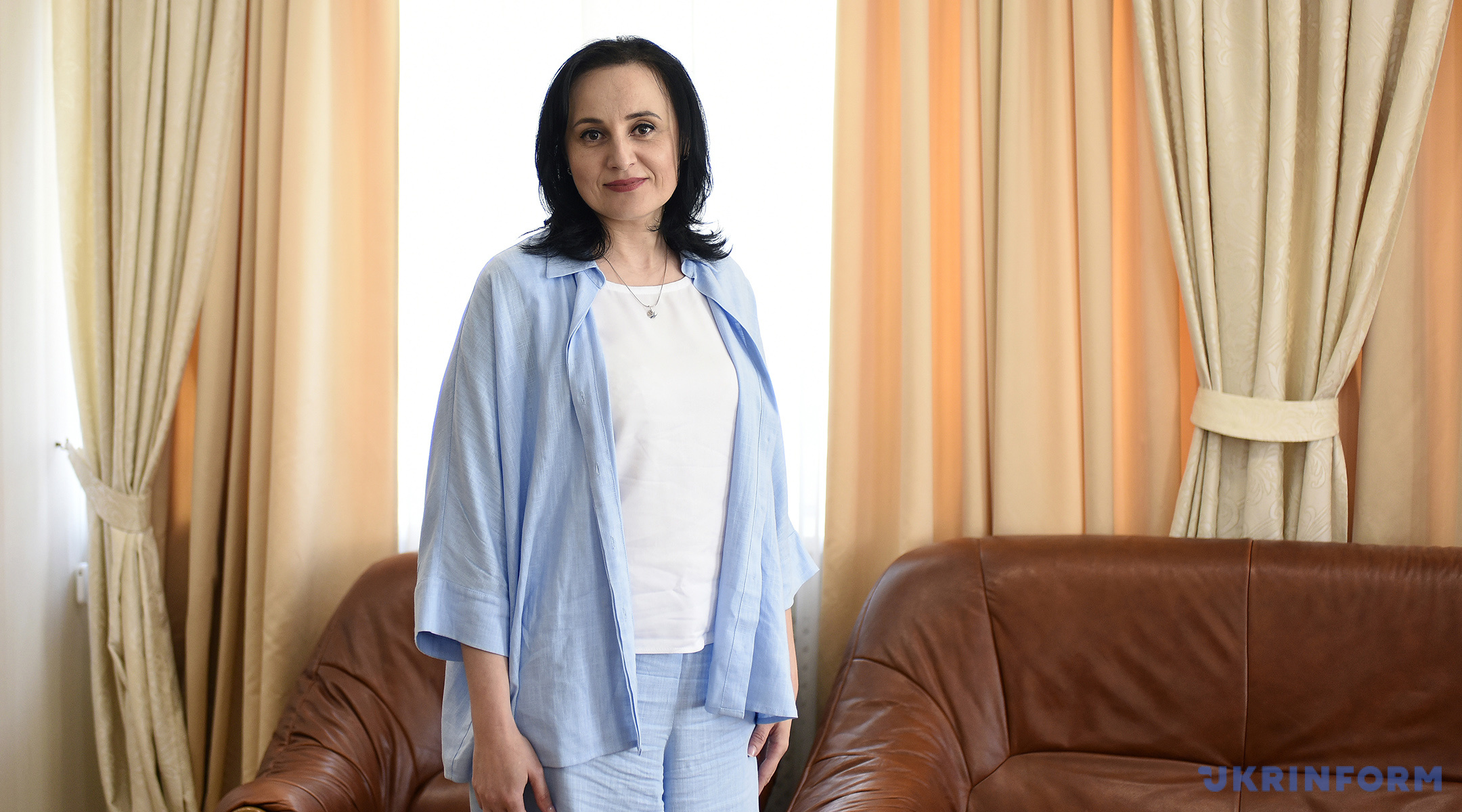
- And what about services and facilities - do you automate them as well? What is the result? And what new things can Ukrainians expect?
- Of course, we digitalize not only payments but also services and facilities. For example, we are currently digitizing the adoption area. The process of providing social services will also be automated. We are currently finalizing the electronic case management program. This is a service that allows social workers to assess a person's needs using a tablet, and then generate the necessary service offers for them and monitor the quality and effectiveness of their provision. This will be a kind of personal social card with all the recommendations and services offered, much like a patient's electronic medical record. Later, by the way, data from the medical sector on the need for social services during rehabilitation will also be automatically transferred to the electronic case management system. This will help to help more people in a timely and quick manner and to see at the state level whether this support is effective.
Thus, the social sphere is currently one of the largest digitalization projects in the country, covering more than 40 different registers and 15 subsystems. It is used by hundreds of thousands of our citizens - people with disabilities, children, the poor, pensioners, and the military.
We have more than 30 different types of social benefits. Eight have already been digitized, and we are working on another ten. With each such process, some part of the administration becomes cheaper and more efficient.
I should add that we do all this with donor funds. We have not spent a single penny from the state budget on digital programs. However, we have already invested more than $4 million in improving digital systems. This is a large amount of money donated by our international partners from various institutions. In particular, these are the World Food Program, TAPAS, EGAP, UNICEF, and the World Bank.
- Are people aware of these innovations? Do many people already use your digital tools?
- So far, we do not receive 100% of requests through Diia or the electronic pension account. Of course, many people prefer to apply in person to Administrative Services Center (ASCs) or social security departments. But digitalization is not only about applications. It is also about internal processes that we simplify, optimize, and make more efficient.
ABOUT SOCIAL SERVICES
- Another element of the social sector reform should be the introduction of a new algorithm for procuring social services, and at the same time the creation of a national social services procurer. What are we talking about?
- Unfortunately, due to various factors, there is no high-quality system of social services in our country. Basically, everyone is focused on payments - pensions, benefits, subsidies, etc. But all over the world, it is the provision of services that is important for the social sphere. Is it possible to help a family suffering from domestic violence, alcoholism, or stress with a payment? No. Ukrainians living abroad have noticed how the state there quickly picks up a person in trouble and provides them with timely support in basic things.
Nowadays, the provision of social services is the responsibility of local communities. And we, the Ministry, have decided to help communities cope with the procurement of these services by creating common standards, common mechanisms and procurement support. That is, to take away part of this routine, such as organizing procurement, creating documents, forming needs assessments, competitive bids, and transfer these functions to a central procurement agency. We are starting with the procurement of resilience services to see how it works and then decide how many of these services should be transferred to the state, and how many should be handled by us to help the community organize and procure them properly.
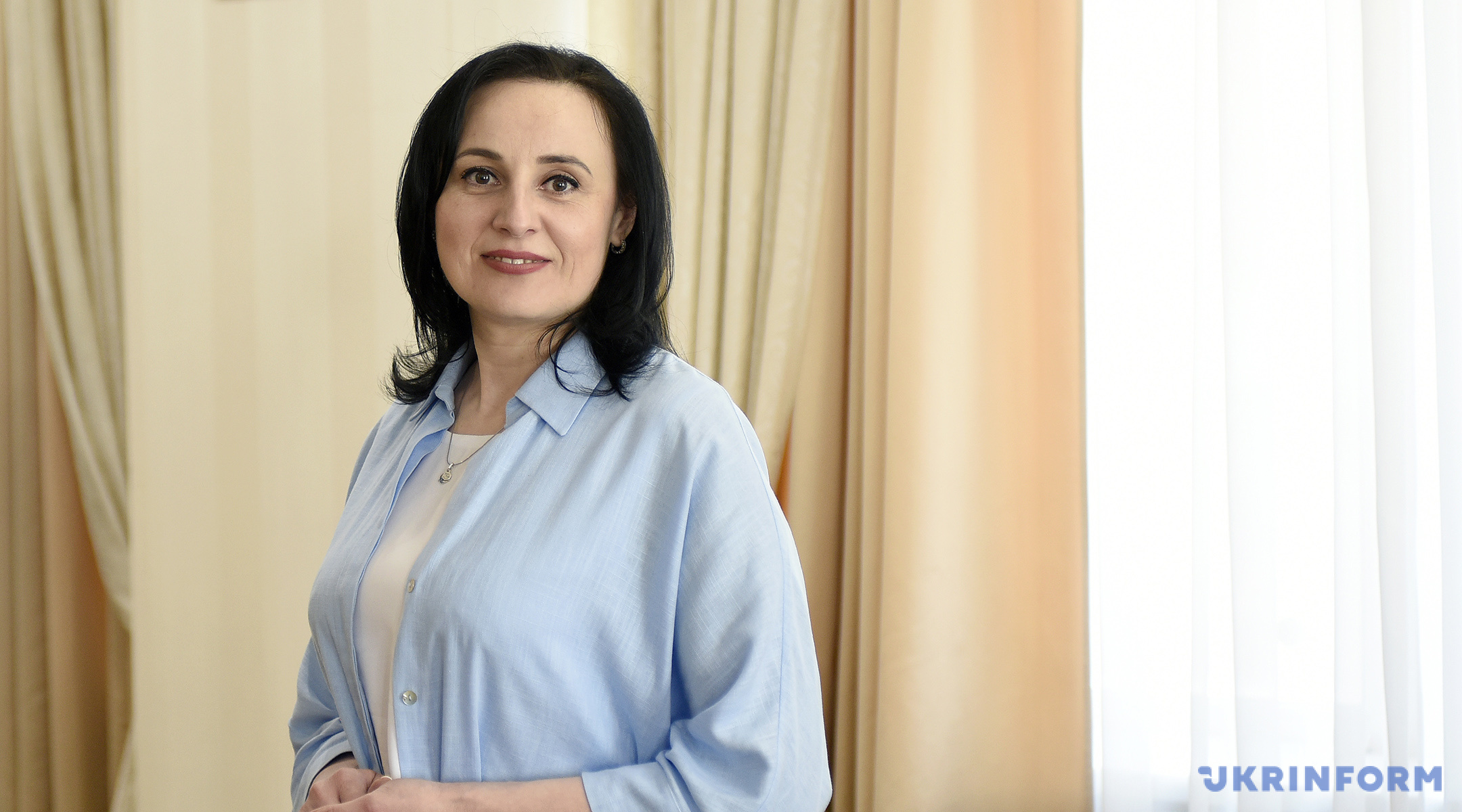
We don't care who in the community is the service provider for the person who needs it. You don't need to maintain an institution all your life, it's easier to buy this service on the market - from an individual entrepreneur, from a public organization, from a municipal provider, and for several communities at once. This will help to develop the market and increase salaries, which are not very high in our sector, which is why the system is experiencing a shortage of social workers. We lack up to 7,000 people. Therefore, we have developed recommendations for each community to transform their social institutions into communal enterprises, following the example of healthcare facilities, and start providing social services to people on a market basis.
- Recently, the Ministry announced the arrangement of 20 resilience centers by the end of the year, and later - up to 1,500 such centers throughout the country. What will happen to the extensive network of social protection institutions, will these centers replace them?
- Social security centers do not provide services, they are structural units in administrations that are mainly engaged in the calculation of benefits. And we want to free up these specialists, take away their accounting function and direct this resource to providing services. There will still be social service centers or territorial service centers that provide a specific service - care for people with disabilities - or shelter, crisis centers, etc.
The service of building resilience is a completely new service that does not overlap with other services. It is about building psychosocial resilience in the community. It will be developed in three key areas.
First, a single point of entry is being created upon a person's request. This will be a place where the same manager will work with them, assess their needs and determine what they need.
The second is a group of specialists who will systematically work with target groups in the community, for example, uniting wives of military personnel, veterans, people with disabilities, parents of children with disabilities, and so on. They will conduct trainings and create support groups.
And the third is working with volunteer initiatives to strengthen communities. For example, a person wants to help in a rehabilitation center or a nursing home, but doesn't know how to do it right or who to contact. The Resilience Center will be a space where volunteers will be trained on how to help and directed to where help is needed in the community.
- The question is, as always, where to get funds and people. You said yourself that you are already short 7,0000 employees.
- So far, we have found the funds in the budget. I hope that the effect of the resilience centers will allow us to program the resource for the next year.
But the issue of specialists is really acute. This year, we increased the state order for training social workers in order to get qualified personnel in 3-4 years.
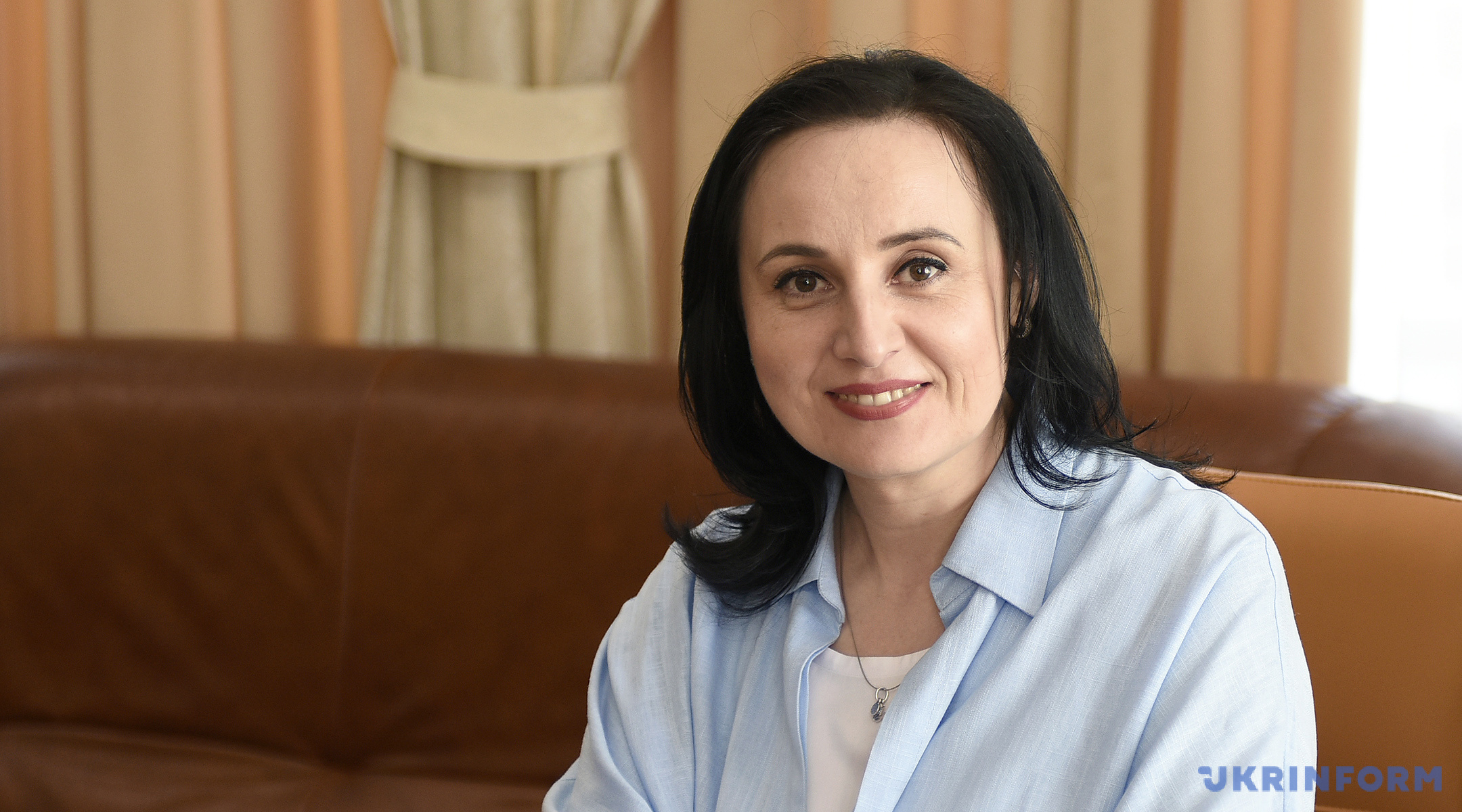
ABOUT THE NEEDS OF VETERANS
- What steps has the government taken to address the urgent issues in the area of veterans' support?
- A comprehensive approach in this area is currently being developed with the involvement of various ministries - Defense, Health, and the Ministry of Veterans - to create a standard for social support and adaptation of military personnel and their families. The Ministry of Social Policy is involved in several projects.
First of all, it supports recruitment centers, former military enlistment offices. There, we train social specialists who accompany the family of a mobilized soldier and the soldier himself after demobilization.
The second project is to provide high-quality and, importantly, timely rehabilitation services. From the first days of stabilization, the wounded need a set of rehabilitation procedures that can be provided by a medical and rehabilitation team that includes not only doctors but also social workers, psychologists, and orthotists. Such teams already work in many institutions and demonstrate their effectiveness. In particular, we use donor funds to pay for the work of 17 social workers in rehabilitation centers selected by the Ministry of Health for the pilot project. But many hospitals have already realized that they need social workers and have hired them. The main change is that the National Health Service now considers such a social worker a member of the hospital team and also allocates funds for them.
- How many companies in Ukraine provide prosthetics services?
- Currently, we have 40 companies on the market that deal exclusively with prosthetics and orthotics, and more than a hundred that provide people with other auxiliary aids such as wheelchairs, canes, crutches. We can cover all the needs by importing mass-produced products and components. But prosthetics does not work like that. It is a constant process of interaction. A person loses weight, becomes fat, and the prosthesis needs to be adjusted and maintained. Many people who have received prosthetics abroad don't know what to do with them.
But we have resolved this issue through regulatory changes. Now you can register your prosthesis with the Social Protection Fund for Persons with Disabilities, and the state will allocate funds for its maintenance. You just need to choose a company that will do it. And here we have a shortage. That is why we work with all international organizations, manufacturers of components for prostheses, leading developers, and invite prosthetists to Ukraine who will systematically train our specialists and improve their skills.
- What can a combatant expect in terms of prosthetics?
- All prosthetics are free of charge. For the military, the amount of compensation is three times higher than for civilians. As of today, the maximum compensation for the cost of a prosthesis is UAH 2 million. Believe me, this covers quite serious wishes and high functionality of any prosthesis for both upper and lower limbs. You can choose a company for prosthetics at your own discretion from four dozen on the market. Their list can be found on the website of the Ministry, the State Service of Ukraine on Medicines and Drugs Control, the Social Protection Fund for Persons with Disabilities, and social protection departments and ASCs.
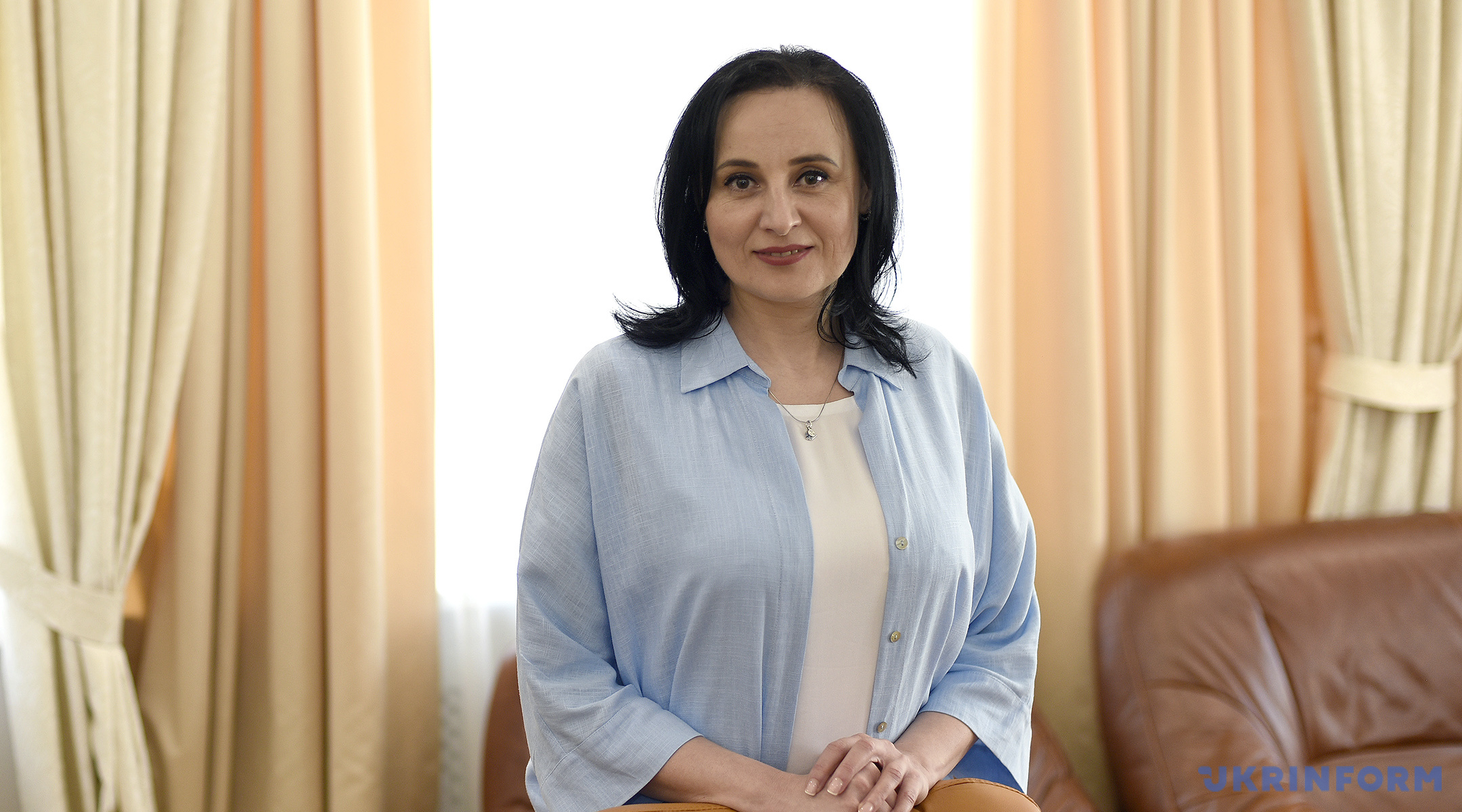
ABOUT CHILDREN'S NON-CHILDHOOD PROBLEMS
- Supporting families with children is another of the Ministry's priorities. What has already been done in this area, what are your plans?
- First of all, we understand that it is best for a child to be in a family. Therefore, our vision is to provide targeted maximum support to families so that children are not removed for one reason or another to various institutions or even foster families. And here the service of support for parents in crisis, training for them, additional payments, and simplification of the administration of these payments are very important. For example, the first digital tool here was eHealth, which provides targeted payments for recreation for a child from a low-income large family or a child with a disability. The pilot of this service has worked well - we started with the territories where military operations are underway and are now expanding it to the whole country.
We are working on digitalizing 10 more types of benefits specifically for families with children. We are developing the eMaliatko service, which already allows you to get a dozen state services.
But there is another challenge: children without parental support, children whose parents cannot be physically returned. In this direction, we are expanding family-based forms of upbringing. We are additionally training foster families, increasing the number of foster families in communities that can "pick up" a child in need.
- How many children are left without parents in Ukraine today?
- There are up to 70,000 children deprived of parental care, orphans and children removed from their parents. However, the vast majority of them are under the care of relatives, meaning that they do not fall out of the family circle. About 23% of them live in foster families or family-type orphanages.
About 5,500 children whose parents are deprived of their rights live in boarding schools. Unfortunately, many of them have disabilities, so we are looking for foster families to take them out of these institutions.
And there are another 20,000 children who also live in orphanages but have parents. And here we need to make a systematic assessment of why this is happening. Some children end up here because of poverty, others are unable to get an education at home because of disabilities or special educational needs. Here, together with the Ministry of Education, we need to develop a network of different educational institutions closer to families or provide transportation to them, so that every child with special educational needs can still return to his or her family.
- How many children are placed in new families on average per year?
- It varies. In 2022, the adoption procedure was suspended due to the problem of closed registries. Therefore, only 752 children were adopted last year. And another 400 children in 2023.
In total, about 8,000 children are left without parental care every year on average. So we have to focus on this figure. Accordingly, we need the number of adoptive parents and foster families to cover this need.
ON THE FURTHER DEVELOPMENT OF THE PENSION SYSTEM
- Implementation of the next stage of the current pension system - the mandatory funded pillar - is among the government's priorities for this year. In April, the relevant draft law No. 9212 was registered in the Parliament. What's next?
- We are working on it. If we talk about a pay-as-you-go pension, it should cover a certain percentage of a person's lifetime earnings to maintain the level to which that person is accustomed. In all countries, this level of coverage is measured as a percentage. This is the standard. If you have worked for 30-35 years, you should receive 40% of your average earnings in retirement.
We are now working on an even higher percentage, so that the solidarity and funded parts exceed 40% of earnings. These are complicated calculations, because for 11 million pensioners in Ukraine, there are about 13 million people who pay social contributions. So, for a pensioner to receive 6-7 or UAH 10,000, his working counterpart must pay a little more than UAH 10,000 in social security. Few people in Ukraine pay such a large unified social contribution. So we need to look for the necessary resources elsewhere, and we are working on it now.
There is also the issue of social justice. The current formula for calculating pensions based on indexation greatly underestimates the real value of earnings. For example, in 2000, a pension of UAH 300 in equivalent to the average salary was not bad. And now, with indexation, it's just a pittance. Indexation is constantly lagging behind, and this is unfair.
We are now working to ensure that everyone has a clear algorithm for calculating their pension based on their length of service and contributions. And that this algorithm is always tied to some basic values.
The funded pension has its own peculiarities. First, we do not want to increase the burden on either the employee or the employer by introducing mandatory savings. Therefore, at the initial stage, the state will take on part of the burden. It is also very important to simplify the administration process. It is also important to develop reliable investment mechanisms to make the money work and not be lost.
So, we are very scrupulously calculating the pension reform. I am confident that we will come up with a concrete result by the end of the year.
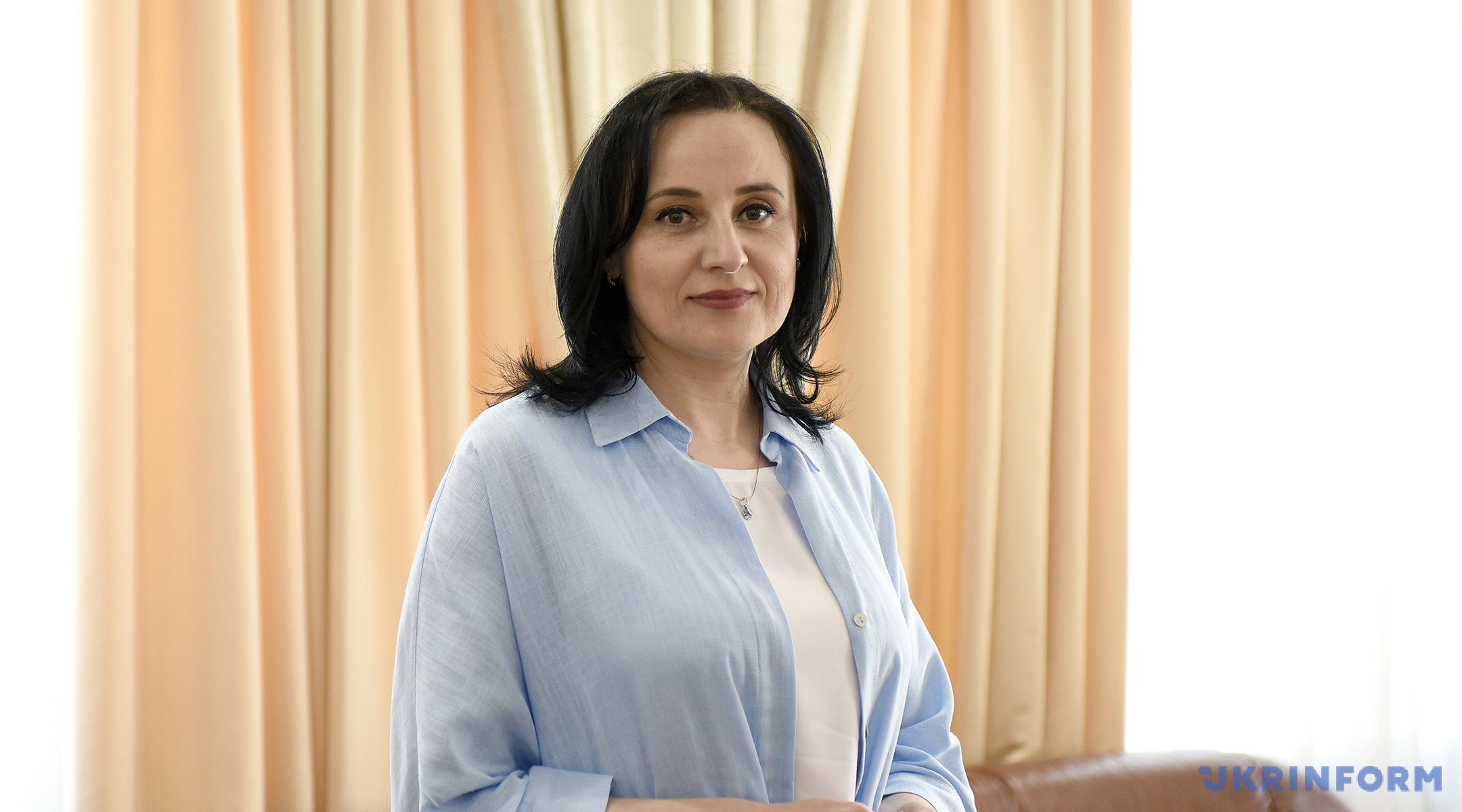
ON BUDGET PRIORITIES AND PARTNER SUPPORT
- Spending on the social sphere, like defense spending, is among the priorities today. Have they increased since the start of the full-scale war? How do you manage to meet the needs?
- Of course, they have increased. Not by much, not as much as we would like, but still. Last year our budget was about UAH 700 billion. Now it is 840 billion in total. Obviously, we need to take into account the inflationary risk and the fact that a large number of people are crossing the poverty line, so we need to increase the resources for support. Therefore, when calculating our proposals for the next budget year, we will take into account three prerequisites
- an increase in the number of people with disabilities and, accordingly, greater needs for their rehabilitation and provision of auxiliary means;
- Increase in funds to cover poverty and basic needs;
- development of services, as I mentioned earlier. Money without services will not allow a person to get out of the predicament in which they find themselves.
We will plan our budgeting with these three components in mind.
And, of course, we will continue to ask our donors for additional financial support. It is no secret that the entire humanitarian budget is now covered by donors.
There is an initiative called "Transition" that has brought all our donors together in a single structure with the Ministry of Social Policy. We have involved representatives of other ministries and jointly direct international funds to communities in areas that will help build a comprehensive social support system.
- How predictable are such revenues, and can they be included in budget planning?
- We are planning this support together with our partners. EU countries are planning three-year support, as are the United States and the UK government. They respond to our proposals, to our reasonable needs.
- So to what extent and for how long are our partners ready to provide such support?
- It depends on us, on our cooperation. So far, I have heard statements from our partners: we are with you for as long as it is needed. They understand the role Ukraine plays for the security of the whole of Europe and the world. Our task is to provide not just a dialog, but a very clear report on what we are spending these funds on, a clear justification of the numbers and the level of efficiency. This is a serious challenge. But we see it as an opportunity. This further encourages us to take a systematic approach to many processes, to constantly review expenditures, to prioritize and optimize them.
- Do your partners have any requirements or suggestions on how to spend the funds provided?
- Yes, we coordinate all items of expenditure. Donors carefully look at all our KPIs. All tranches are tied to specific indicators, for example, simplification of administration or the level of digitalization. We fulfill these criteria very clearly, so we have a fruitful dialog with donors.
At the same time, when I say that we have an increasing number of young and active people with disabilities and we need a rehabilitation program that will bring these people into the labor market, it is a clear message and a clear need. And we are heard. When we say that the number of people in poverty is increasing and we need to help them, we are also understood. When we say that people need stress management services and we need money for them, they also understand. This is extremely important.
- The Ministry is stepping up verification of social benefits. Is it related to the requirements of the partners?
- Yes, it is. But we also want all the funds to be invested in a high-quality manner so that we get the maximum result. By the way, it is the digital data exchange that we have introduced that helps us to carry out high-quality verification. And we have made significant progress in this area. Previously, we could receive, for example, warnings from the Ministry of Finance about unclear expenses, we could not see all of a person's income, and some people were overpaid. So a high-quality system of verifying the criteria immediately allows us to avoid paying too much.
ON FORECASTS FOR THE NEXT YEAR
- What will happen to social spending next year? Tell us what Ukrainians can expect in 2024 and whether the amount of payments will be revised?
- The amount of payments will definitely be maintained, no one will reduce them. We will try to increase poverty benefits, but the percentage of this increase, of course, depends on negotiations with our international partners.
Pensions are guaranteed to be paid as they are now. The Pension Fund is largely dependent on our military. Such a large number of people who receive decent salaries and pay a unified social tax makes it possible to fill the fund's budget and even carry out indexation. We understand that the large-scale war will continue, so we expect approximately the same revenues to the Pension Fund as last year. If we find additional resources, we will be able to increase payments.
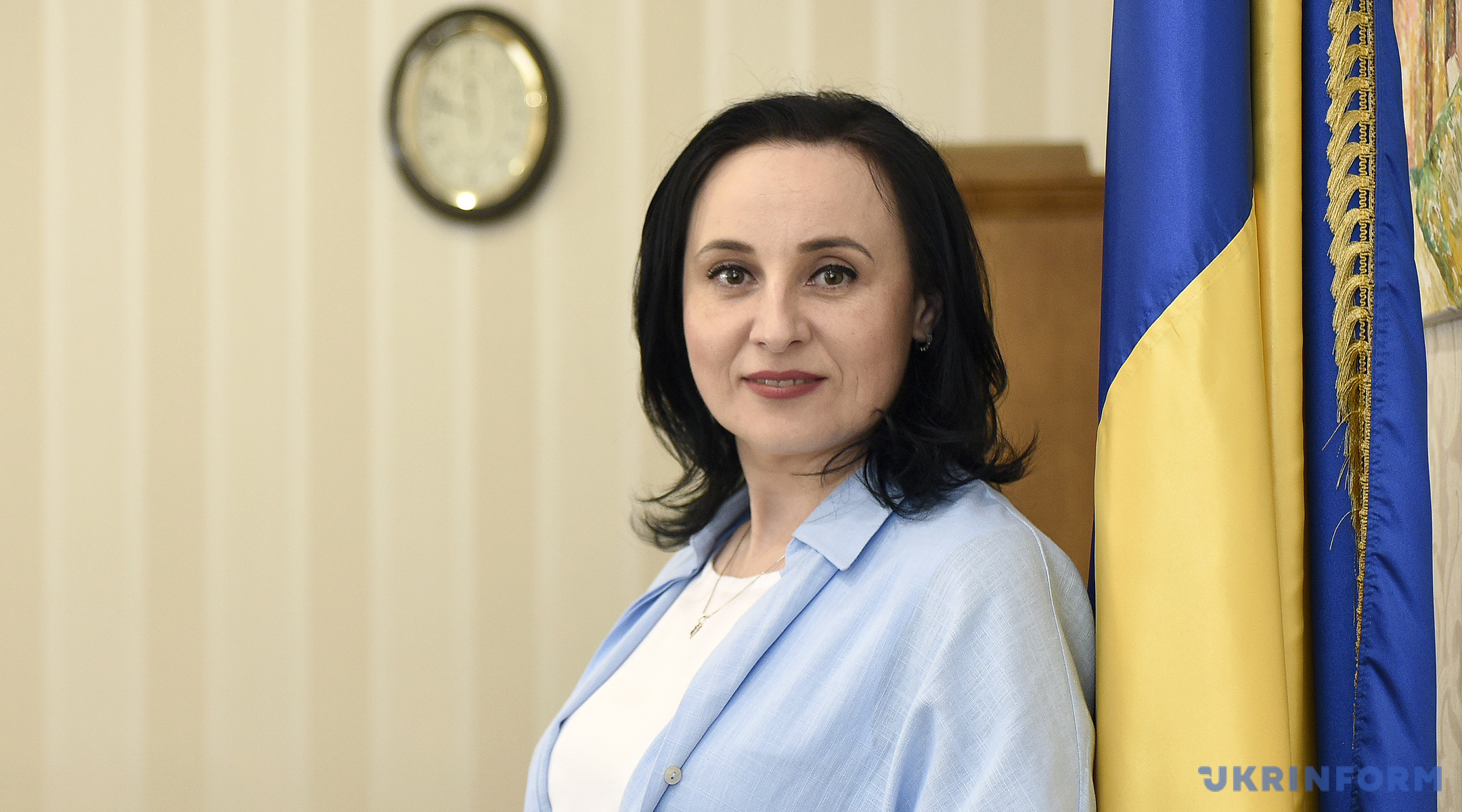
- Will pensions be indexed in March-2024?
- This is a legal requirement, although it is allowed not to be carried out during martial law. This year we did it. Next year, we will try to do the same, but it is difficult to say what will be waiting for us in early spring after another difficult winter. So we are still planning, and life will tell.
- What about subsidies for the heating season?
- We will definitely have them. This is our priority assistance. We are now fully digitalizing this service. Starting in December, such assistance will be available in Diia in one click. In the summer, there was an increase in energy prices, so we understand that the number of people who will need this service will increase. And we are preparing for this.
Yulia Abakumova, Kyiv
Photo: Ruslan Kanyuka
